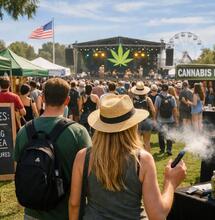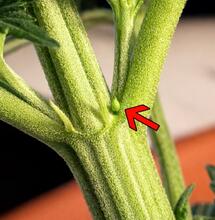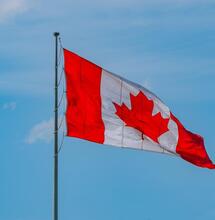Cannabis & Social Media: What is Possible and What Not?

There's a lot of Cannabis content nowadays on social media. You can scroll through reels and photos for hours on Instagram, watching dudes dabbing their budder or growers showing their extraordinarily big beautiful colas for the whole world to see. While it might be simpler for individual users to share such content on their personal feeds, Cannabis brands and companies are facing a hurdle when it comes to the promotion of their content, products, or services. Social media censorship and a lack of consistent advertising regulations continue to plague the budding sector.
There's a lot of content that you supposedly shouldn't do on networks such as Facebook, Instagram, Twitter, or TikTok. It might be fun to post yourself how you smoke a big fat joint at your birthday bash and there's only a slight chance the platform will ever remove your content. Especially if it's a post where you don't use a hashtag that says #ismokeweedthemomentiopenmyeyes or if it's a story that will disappear in a few hours.
Whatever the case, this "irresponsible" kind of behavior might at some point cost you trouble if you come from a jurisdiction that does not support legal marijuana. For example, it may end up in the wrong hands, and it technically can be used as a piece of evidence by local law enforcement against you. So, it is at your own risk to share smoking a blunt type of content on your personal feed if you come from a place that still practices witch hunts on those who share a spliff with a friend and you are not someone rich, famous and has a mansion in Hollywood.
However, the question of what is acceptable and what is not to be posted and shared as content on platforms such as Facebook or Instagram gets more complicated for those who run a Cannabis business.
It's a boom time for the cannabis industry. More brands than ever rely on their reach to social media to promote their business, educate audiences on the use of various Cannabis products, or advocate for legalization, social justice, and destigmatization. Regardless of what they do, everyone faces strict social media community guidelines for content as well as government regulations regarding the promotion of marijuana. This makes it difficult for many brands to build a consistent presence on Facebook, Instagram, Twitter, or other channels.
What the major social media platforms definitely do not allow Cannabis business entities to do is buy paid ads and content placements. Commercial content can be interpreted as advertising and can be flagged and reported by anyone, including users, regulators, and competitors. With a few clicks, anyone can report a post or profile to the platform for community violations, which can result in removing the content or even suspending the business's page or profile from that very platform.
On Facebook, ads must not promote the sales or use of illegal, prescription, or recreational substances. Cannabis companies cannot run ads even in legal states because of federal restrictions on marihuana. A failure to comply with Facebook's advertising guidelines can result in shutting down your ads and deleting your account forever.
Instagram mimics the same policies as its parent company Facebook. The community guidelines there require that you only share original content you have created or have the legal right to share. The content cannot directly advertise marijuana, regardless of your state or country.
Content removal can happen extremely fast for more "sensitive" categories such as Delta-8 THC. A warning that notifies for the removal will say that the platform does not support sharing information on illicit products like Delta-8 gummies. Unsurprisingly, this particular policy followed a surge of intoxication cases with Delta-8 products last year in the U.S. A dozen of states introduced strict bans on any such products. The social media giants followed steps and specifically targeted content associated with Delta-8.
Educational content is a bit safer for Cannabis brands. But even with that type of content, there is no guarantee of what can happen in the end. You've probably heard it before: someone successfully grew a page with for example 10,000 Instagram followership only to have it removed at some point, the account suspended and all content is gone. For a reason that's hard to explain.
Excluding cannabis-related hashtags on posts, not using dollar signs in your copy, and not depicting cannabis consumption might help you preserve your business accounts and pages, according to some social media experts.
All these restrictions speak of the magnitude of cannabis content censorship on various social media platforms. Whatever the case, cannabis content is here to say, no matter how difficult it is for businesses to authentically engage with audiences and the larger Cannabis community over social media. The times are changing, and with more U.S. states disregarding the federal ban on marijuana, pressure builds, and the rules and regulations for social media will eventually also have to change.















